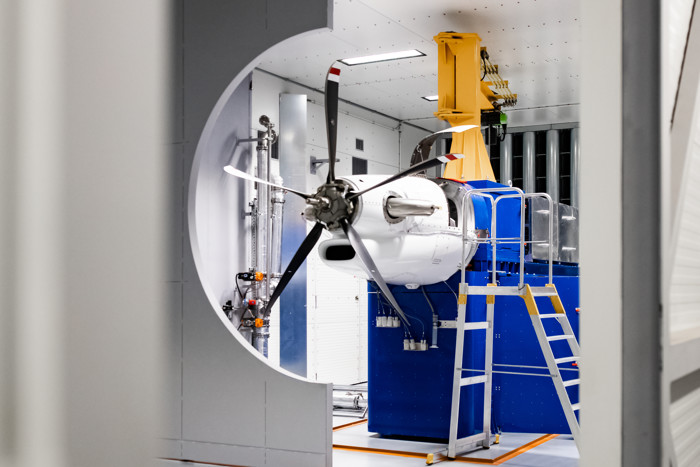Center of Advanced Aerospace Technology
The Center for Advanced Aeronautical Technologies (CAAT) project in the period 2017-2022 was created in the call for Excellent Research from ESIF funds, the operational program Research, Development and Education, the main contribution is the development of new technologies for aircraft engines. The Center for Advanced Aeronautical Technologies is a center of international excellence engaged in problem-oriented interdisciplinary research in the field of simulation of degradation processes of individual components and their influence on the functionality of aircraft engines and aircraft structures with an original practical impact in the form of experimental development of parts of a new turboprop engine and their assembly into a functional unit achieving parameters that surpass engines of current concepts in a given performance category. The goal of the project is to develop a system for lifelong monitoring of the individual service life of aircraft engines and entire aircraft, with the aim of extending the life cycle, functionality, safety and economic efficiency of operation
The main areas of research were three, including effective modeling, effective data processing and utilization, and the necessary new production technologies. Specifically, it was the development of methods and procedures for modeling and effective simulation of degradation processes of aircraft structure components, the development of methods and procedures for individual lifetime monitoring of the functionality and service life of aircraft structures, and the development of new materials and new procedures for the production, assembly, and maintenance of aircraft structure components and assemblies with regard to their specific requirements. A challenging part of the project was the construction of a system of test facilities that enable integral testing of aircraft engines. There is a core test cell, a dynamometric test cell, two propeller test cells, and an experimental aircraft as a flying test bed. Experimental engines were also purchased, on which research and development was conducted in the test facilities (Fig. 1).
To meet this challenging goal, CTU the Faculty of Mechanical Engineering concluded a collaborative research agreement with GE Aviation Czech, which provided knowledge and was completing the development of the new Catalyst turboprop engine in the Czech Republic at the time of the project.
The main beneficiary of the project is CTU, FME, and the other participant is BUT Brno. The project involved most of the Departments
of the Faculty of Mechanical Engineering covering a wide range of technologies needed for new aircraft engines.

Fig. 1 Turboprop engine GE Catalyst at the propeller test cell
Contact:
prof. Ing. Michael Valášek, DrSc.
Department of Mechanics, Biomechanics and Mechatronics FME CTU in Prague
E-mail: michael.valasek@fs.cvut.cz
Phone: +420 224 357 361
![[design/2014/cvut-logo-en-white.png]](https://fs.cvut.cz/content/images/design/2014/cvut-logo-en-white.png)
![[design/2014/cvut-logo-en-print.jpg]](https://fs.cvut.cz/content/images/design/2014/cvut-logo-en-print.jpg)